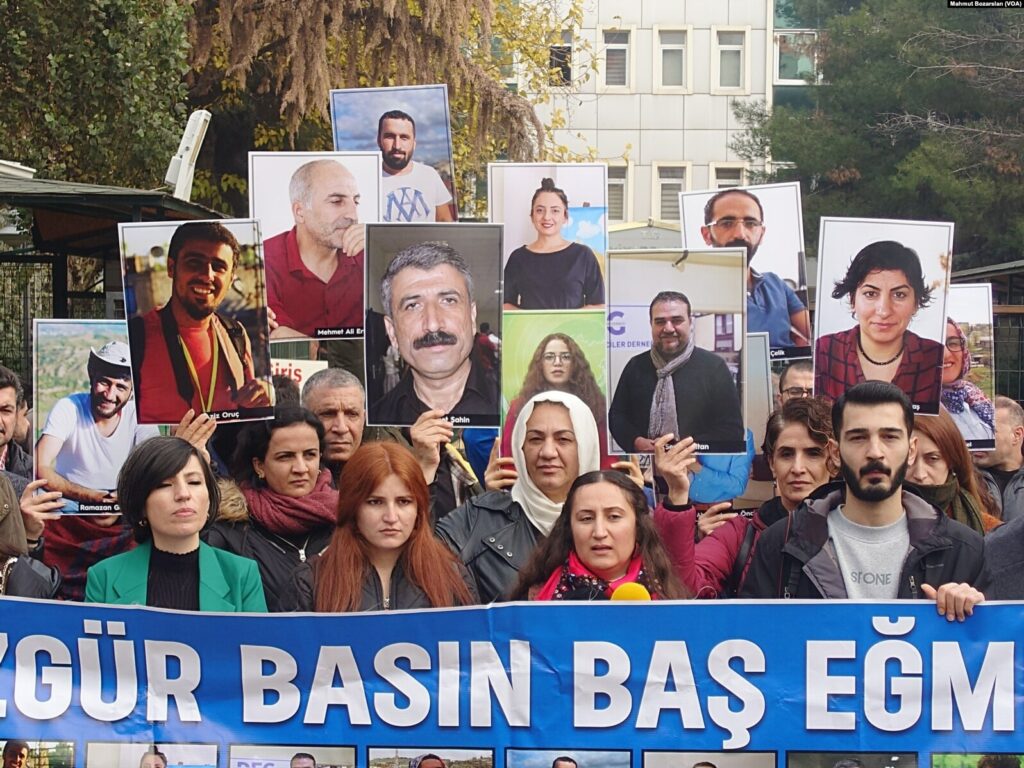Twenty-one people, the vast majority of whom are Kurdish journalists detained in southeastern Diyarbakır province in June 2022, have been indicted on terrorism charges 10 months after their detention, Voice of America (VOA) Turkish service reported on Wednesday.
Sixteen of the 21 detainees, including Serdar Altan, co-chair of the Dicle Fırat Journalists Association (DFG), Mezopotamya news agency (MA) Editor-in-Chief Aziz Oruç and JinNews News Director Safiye Alagaş, were arrested by a court on June 16, after they had been held in custody for eight days, in a move that sparked outrage among opposition politicians, members of the press and rights activists.
The Kurdish journalists, who had been detained as part of an operation overseen by the Diyarbakır Chief Public Prosecutor’s Office, were arrested on charges of membership in a terrorist organization.
According to VOA, the indictment, which has not yet been seen by defense lawyers, was sent to the Diyarbakır 4th High Criminal Court for review. If the court accepts the indictment within 15 days, preparations for the trial will begin.
Resul Temur, the journalists’ lawyer, told VOA that he hopes the court will accept the indictment and acquit the journalists of the charges leveled against them.
Meanwhile, the Artı Gerçek news website reported on Wednesday that the release of journalists Dilan Oynaş and Abdulkadir Turay, both reporters for the now-closed Dicle News Agency (DİHA), was postponed due to decisions made by the prisons’ parole boards.
The release of the journalists, who were convicted of “membership in a terrorist organization” in 2016, was delayed due to a “lack of remorse,” Artı Gerçek said.
The release of Oynaş, whose sentence was completed on April 26, 2022, has been postponed four times, while the release of Turay, who would have served his full sentence in 2025, was delayed for three months.
It is common for journalists in Turkey, which has a poor record on freedom of the press, to face threats, physical attacks and legal harassment due to their work.
Rights groups routinely accuse the Turkish government of trying to keep the press under control by imprisoning journalists, eliminating media outlets, overseeing the purchase of media brands by pro-government conglomerates and using regulatory authorities to exert financial pressure, especially after President Recep Tayyip Erdoğan survived a failed coup in July 2016.
Turkey, which is among the top jailers of journalists in the world, was ranked 149th among 180 countries in the Reporters Without Borders (RSF) 2022 World Press Freedom Index, released last May.

